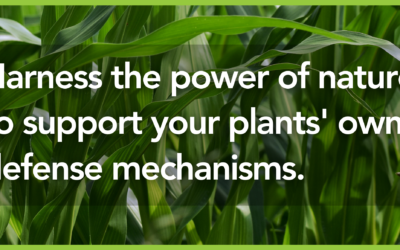In exceptionally healthy soil, it has been estimated that there should be about 8,000 pounds of biology per acre. While most people think of bacteria, fungi, or earthworms, it’s less known that around 90 pounds of that soil life should be microalgae.
Microalgae are in some ways similar to bacteria, in the sense that they are a very important part of the soil’s biological community and are also very tiny and cannot be identified with the naked eye.
The hidden power of microalgae in the soil mirrors the experience growers can have with EnSoil Algae™. It’s easy to get discouraged when you don’t see a dramatic visual change in your fields after application. But as Mr. Smucker’s story proves, EnSoil Algae™ works powerfully behind (and beneath) the scenes, enhancing your crop’s stress adaptation and protecting your bottom line even when there’s no visible difference. It’s about preventing costly losses you might not even realize are coming.
Mr. Smucker, a Pennsylvania farmer in Lancaster County, planted 52 acres of organic wheat. 25 acres were planted in early October and the other 27 acres were planted in November. That fall, the whole field got 2.5 tons per acre of layer hen manure and an application of his standard biostimulant program (Rejuvenate and SeaShield.) In early March, he applied EnSoil Algae™ (with his standard biostimulant program) to most of the field, leaving 3-4 acres untreated.
At harvest, the average yield was in the low-mid 80 bu/acre range, which was low due to half the field being planted later. Initial testing by one buyer revealed the average vomitoxin levels in the wheat were too high (3.5 – 4), leading to rejection. However, a second buyer tested each load individually, and almost all were 0.00, except one load which tested very high at 7.2 (even after triple testing). This problematic load came from the area not treated with EnSoil Algae™. The reduced income from this load ($1,000) convinced Mr. Smucker to use EnSoil Algae™ regularly in the future.
It’s important to note that Mr. Smucker did not see a visible difference in the treated and untreated sections, nor did he have a noticeable yield difference. However, the ROI benefit from using EnSoil Algae™ made a huge impact.
Full study from Keystone Bio Ag: https://www.keystonebioag.com/article/algaes-role-in-soil/
